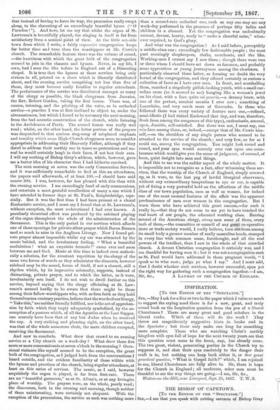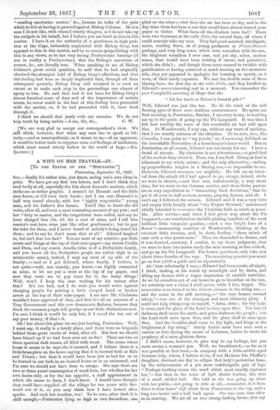THE BISHOP OF CAPETOWN. [To THE EDITOR OF TILE "SPECTATOR."]
SIR,—I see that you speak with cutting sarcasm. of Bishop Gray
"exuding saccharine matter," &c., because he talks of the pain which he felt at having to proceed against Bishop Colenso. He is a man rdo not like, with whom I utterly disagree, so I do not take up the cudgels in his behalf, but I believe you are hard on him in this matter. I have it on the authority of a gentleman in high posi- tion at the Cape, intimately acquainted with Bishop Gray, but opposed to him in this matter, and by no means sympathizing with him in any views, as he has very strong Presbyterian leanings (if not in reality a Presbyterian), that the Bishop's assertions of sorrow, 8:c., are literally true. When speaking to me of Bishop Colenso's great social qualities, he said that he had originally obtained the strongest hold of Bishop Gray's affections, and that this feeling bad been so deeply implauthd that, through all their subsequent quarrels, Bishop Gray still retained it to such an extent as to make each step in the proceedings one almost of agony to him. He said that had it not been for Bishop Gray's almost fanatical sense of duty and of the importance of certain tenets, he never could in the face of this feeling have proceeded with the matter, or, if he had proceeded with it, have lived through it.
I think we should deal justly with our enemies. We do not help truth by being unfair.—I am, Sir, &c., C. W.
[We are very glad to accept our correspondent's view. We still think, however, that when any man has to speak so bit- terly,—and so unscrupulously, as it seems to use—of an opponent, it would be better taste to suppress even real feelings of tenderness, which must sound utterly hollow to the world at large.—En. Spectator.]































 Previous page
Previous page